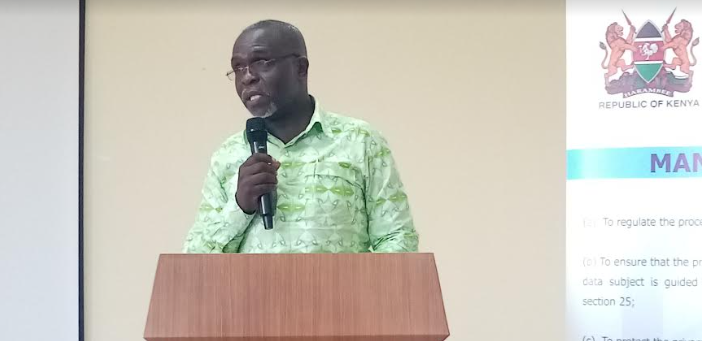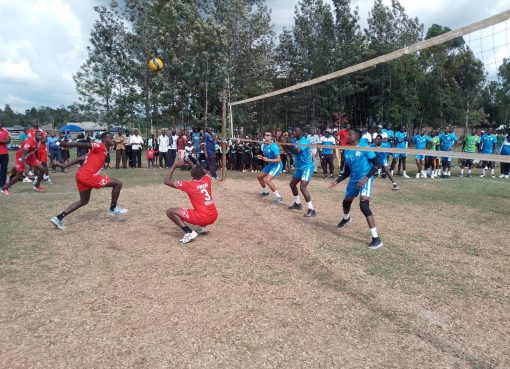The Office of the Data Protection Commissioner (ODPC) will open regional offices to enhance campaigns and education among Kenyans and institutions on handling and protecting client personal data.
The Data Protection Commissioner, Immaculate Kassait, said the regional offices will be opened in Mombasa, Kisumu, and Nakuru in July this year, while Huduma Centres will be used to deliver ODPC services at the grassroots.
The revelation was made in a presentation delivered on her behalf by Edmond Wandera, a Principal Complaints and Investigations Officer at ODPC, during a County Awareness Outreach Programme at a Bomet hotel.
Under the County Awareness Outreach Programme, ODPC will hold one-day public sensitization workshops countrywide, with 15 counties expected to be covered by Tuesday next week.
Counties already covered include Machakos, Mombasa, Tana River, Garissa, Kericho, Bomet, Kirinyaga, Murang’a, Meru, Tharaka Nithi, and Trans Nzoia.
The awareness forums are intended to educate Kenyans and institutions on the need for and how to protect customer personal data they collect in their service delivery processes.
Kassait stressed that personal data protection was a constitutional demand under Section 31 of Kenya’s constitution, which guarantees one the right to privacy, besides being a human rights issue.
The Commissioner said the digital era had increased the collection of personal data and hence the need for collectors and processors of the same to establish strategies to guard against breaches of personal information in their custody, warning that under the Data Protection Act of 2019, one can be punished for misuse of or failure to secure such records.
Personal data is defined as information that describes or defines an individual and can therefore be used to identify the person. Sensitive records include the person’s name, ethnicity, health and financial status, property, family details, and sexual orientation.
Opening the workshop, Bomet County Commissioner, Dr. Ahmed Omar, stressed the need for public awareness on the protection of personal data, saying information on individuals “was scattered all over.”
Dr. Omar cited government departments, health facilities, hotels, learning and religious institutions as among the data collectors and processors holding crucial personal data, hence the need to intensify education on the protection of the same.
The Commissioner said increased digitization of government services, where 5,000 of them are expected to be digitized, meant more personal data would be available through the internet, which required public officers to be educated on data protection while concerned agencies should develop structures to ensure cyber security.
Dr. Omar urged all public institutions to register with ODPC as required of all data collectors and processors under the Data Protection Act, 2019.
Bomet County Executive Committee Member for Administration, Public Service, and Special Programmes, Dr. Joseph Kirui, said there was a need for more engagement between the County Government and ODPC to enhance sensitization among area public officers on data protection.
Dr. Kirui described the training as timely, saying the digital era had led to the proliferation of information, some of which was misleading and whose spread could be checked through enforcement and public sensitization on data protection.
Area Deputy Governor Shadrack Rotich, said both the national and county governments generated a lot of personal information through the issuance of several documents and in the course of service delivery, yet most of the staff involved had little or no knowledge on its protection.
“We generate a lot of information about people in the issuance of identity cards, birth certificates, passports, Kenya Revenue Authority Personal Identification Number, Personal Numbers for government employees, and driving licenses—so much data about an individual,” said Rotich.
He proposed the substitution of the national identity card and passport as the documents required interchangeably for personal identification when accessing some services, saying they were private security documents, yet copies were left in many service delivery offices.
The Deputy Governor proposed the fast-tracking of the processing of Huduma Namba and its adoption as a substitute for the national identity card and passport for personal identification in accessing services that demanded either of the two documents.
By Ngugi Bernard





